Changing the method, keeping the service
On April 3, the national unemployment rate reached 12.5% as a result of business closures due to COVID-19, according to the New York Times. Most school districts in the state of Texas are closed until May 4 or later. Job loss is causing financial instability and school closures keeping children home is adding new pressures to parents as they become home school teachers, some lacking the resources to do so, such as the Tulul family.
Still in the process of recovering from a tornado that ripped through their Dallas neighborhood in October 2019, the Tulul family is a true image of hope and perseverance through the challenges of a pandemic. Francisco Tulul is the sole provider for his family, and due to the pandemic, he lost his restaurant job and does not qualify for unemployment benefits.
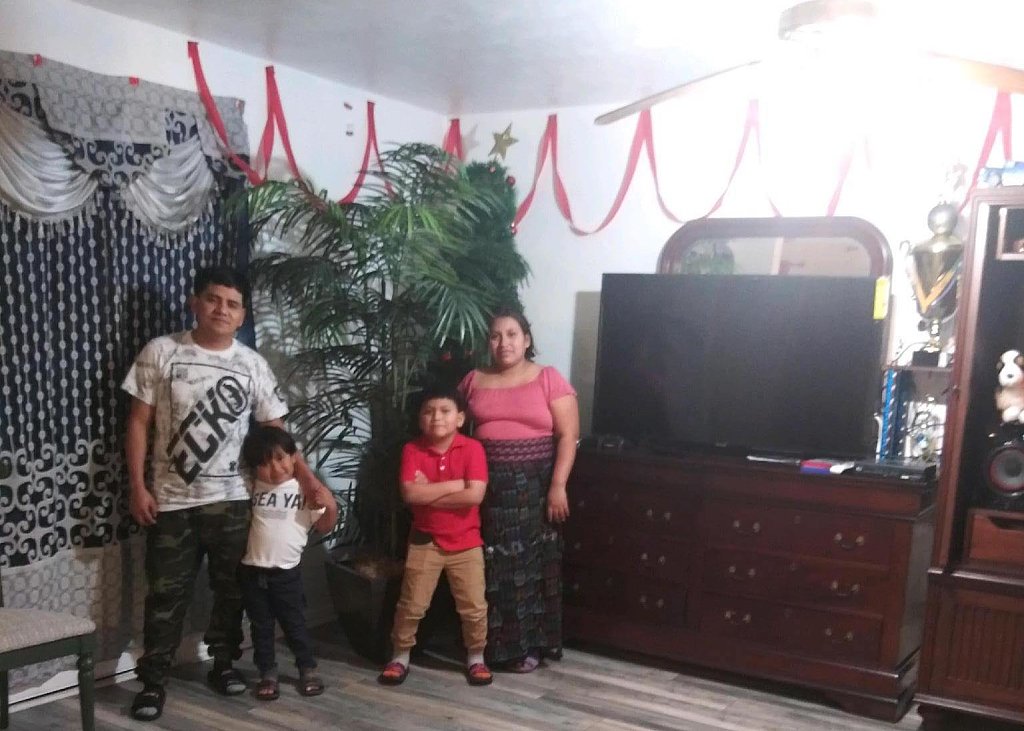 With three children in school, only one computer to complete assignments on, no internet service and very little computer literacy, the children have not been able to complete their online homework.
With three children in school, only one computer to complete assignments on, no internet service and very little computer literacy, the children have not been able to complete their online homework.
With a fourth child on the way and unable to pay rent or buy groceries, much less install internet into their apartment, the Tulul family turned to Buckner. The Buckner Family Hope Center at Bachman Lake in Dallas provided the family with a Spectrum resource, allowing their children to have internet access, and supply them with constant food resources. In addition, Buckner collaborated with a local apartment complex to help Francisco find a more affordable home.
The Tulul family is one of many examples of how Buckner is continuing to shine hope to the hopeless during the COVID-19 pandemic.
In a letter to the Buckner Children and Family Services staff, Senior Vice President Henry Jackson wrote, “These are unprecedented times for all of us, but we know God is ultimately in control. The mission of Buckner to serve the vulnerable has not changed; only the format in which we serve has. We value our clients; therefore, we will always put their health and safety first.”
Program classes held at Family Hope Centers around Texas, such as Jobs for Life and Faith and Finance, were moved to an online format when possible, allowing clients to continue working on achieving personal goals and strengthening their families. Blanca and Luz, volunteer ESL instructors at the Family Hope Center in Longview, are even texting daily homework assignments to their students studying basic English.
The virtual format was adopted by all of the Buckner preservation programs across the state of Texas, including Project HOPES, Family and Youth Success Program (formerly STAR), transition programs and Buckner Family Pathways.
Cynthia Rentie, director of Family Pathways in Dallas, said providing clients extra support and communication is helping moms and families stay informed through the chaos.
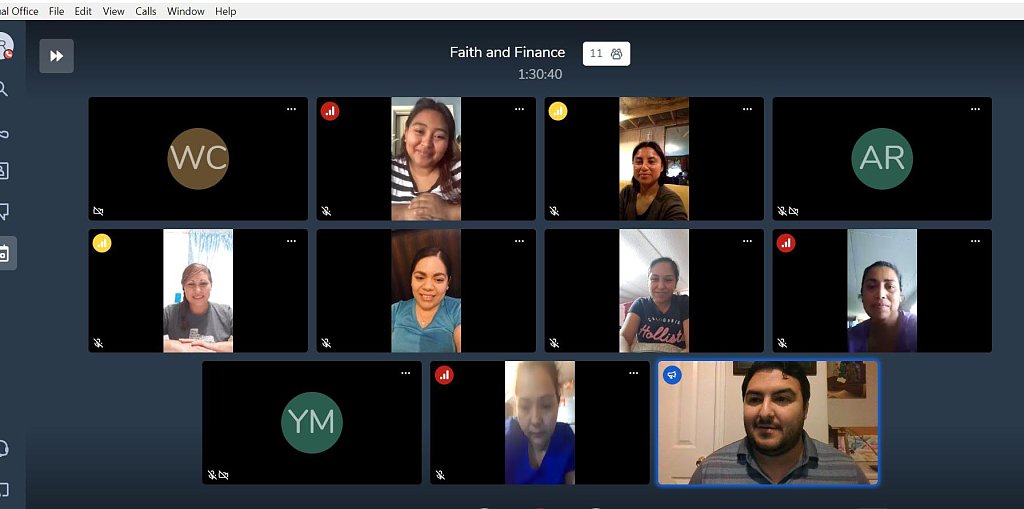 “Virtual communication is allowing us to provide extra support in helping all our clients deal with the struggles that coronavirus is causing,” Rentie said. “The communication has been a blessing when it comes to keeping our families informed, knowing what’s happening and how it can affect each life. We are also providing families with ways to cope through this time of crisis.”
“Virtual communication is allowing us to provide extra support in helping all our clients deal with the struggles that coronavirus is causing,” Rentie said. “The communication has been a blessing when it comes to keeping our families informed, knowing what’s happening and how it can affect each life. We are also providing families with ways to cope through this time of crisis.”
Counseling services offered by Buckner also moved to an online or virtual format to continue serving clients as they work through mental and emotional challenges. Lines of communication remain open for all clients during shelter-in-place orders. Jackson said the current focus for counseling services is proactively addressing emotional health through the pandemic.
“We are focusing on the feeling of lack of safety, depression, anxiety and suicide, which can surface during times of great stress and crisis. We are also increasing our weekly communication, Bible studies and recovery groups,” Jackson said.
A mom on the verge of giving up after losing her job now has hope because of the support she continues to receive from Rentie’s Family Pathways team. Regular check-ins from staff, her therapist and weekly devotions give her strength to keep going and comfort in knowing she is not alone in this crisis.
In some areas, like the Rio Grande Valley, many communities served by Buckner lack basic infrastructure, such as access to reliable high-speed internet, explained Diego Silva, director of the Family Hope Center at Peñitas.
“We have shifted our service delivery to an online platform," Silva said. "But for many of our clients, we are limited to phone calls. However, those calls are so deeply appreciated.”
Routine connections with clients through virtual check-ins and follow-ups are even more essential when face-to-face meetings can no longer happen. Regular communications allow Buckner staff to hear what clients are needing most whether that be emotional support, food or financial assistance.
“The most valuable resource is for me, as their family coach, to be there for emotional support," said Cathy Benitz, a family coach with the Family Hope Center at Aldine in Houston. "To listen and comfort and be available when needed.”
Through collaborations with organizations such as United Way, Equal Heart and more, Buckner can provide financial assistance to clients whose jobs were affected by the coronavirus. This assistance is being used to provide clients with funds for rent, groceries and basic household needs.
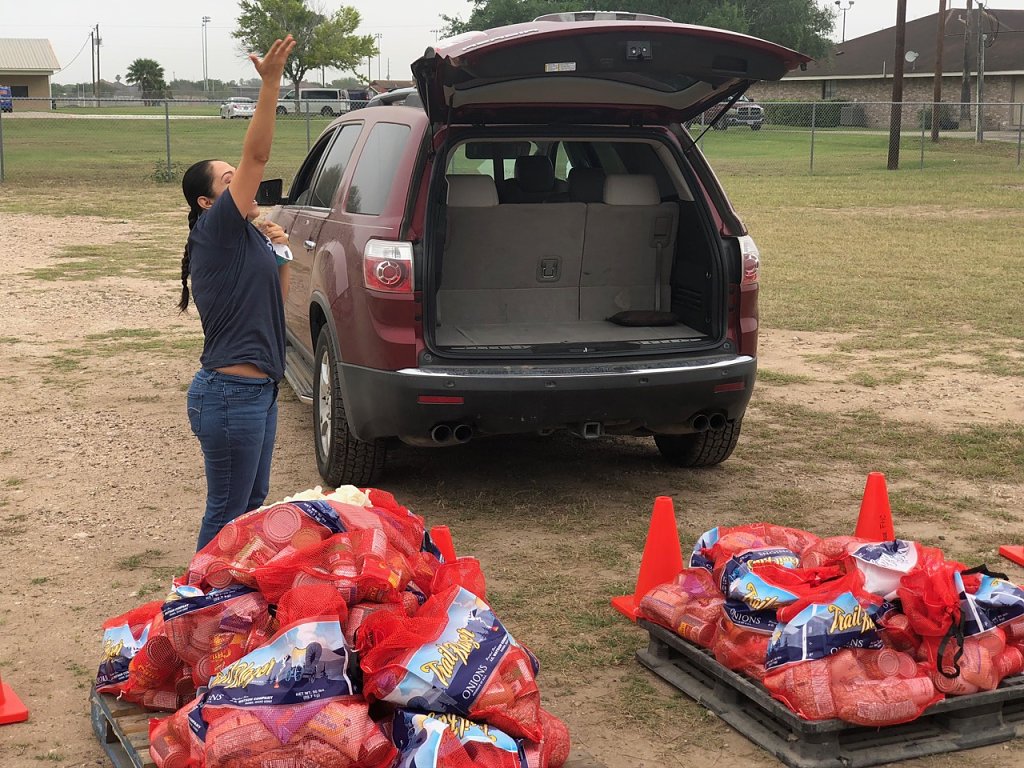 In the Rio Grande Valley, 200 Buckner families received enough food for 17 meals through a collaboration with the Rio Grande Valley Food Bank. Similar collaborative food distributions occurred around Texas.
In the Rio Grande Valley, 200 Buckner families received enough food for 17 meals through a collaboration with the Rio Grande Valley Food Bank. Similar collaborative food distributions occurred around Texas.
In addition to collaborations with other nonprofits and organizations, Buckner developed a community resource index for all its program staff to reference and utilize when working with clients. Included in this index are statewide and local resources such as food banks, unemployment details, communication programs and online and video resources for families, covering topics from parenting and self-care to how to talk to kids about COVID-19.
The Family Hope Center at Reed Road in Houston even created a weekly newsletter for its clients as a way to share important resources and services, as well as words of love and support.
The mission, vision and goals of Buckner have not changed with the circumstances. The method of delivering services to mitigate the risk for those being served has changed, and in some instances, communication has even increased to ensure proper support and that client needs are met.
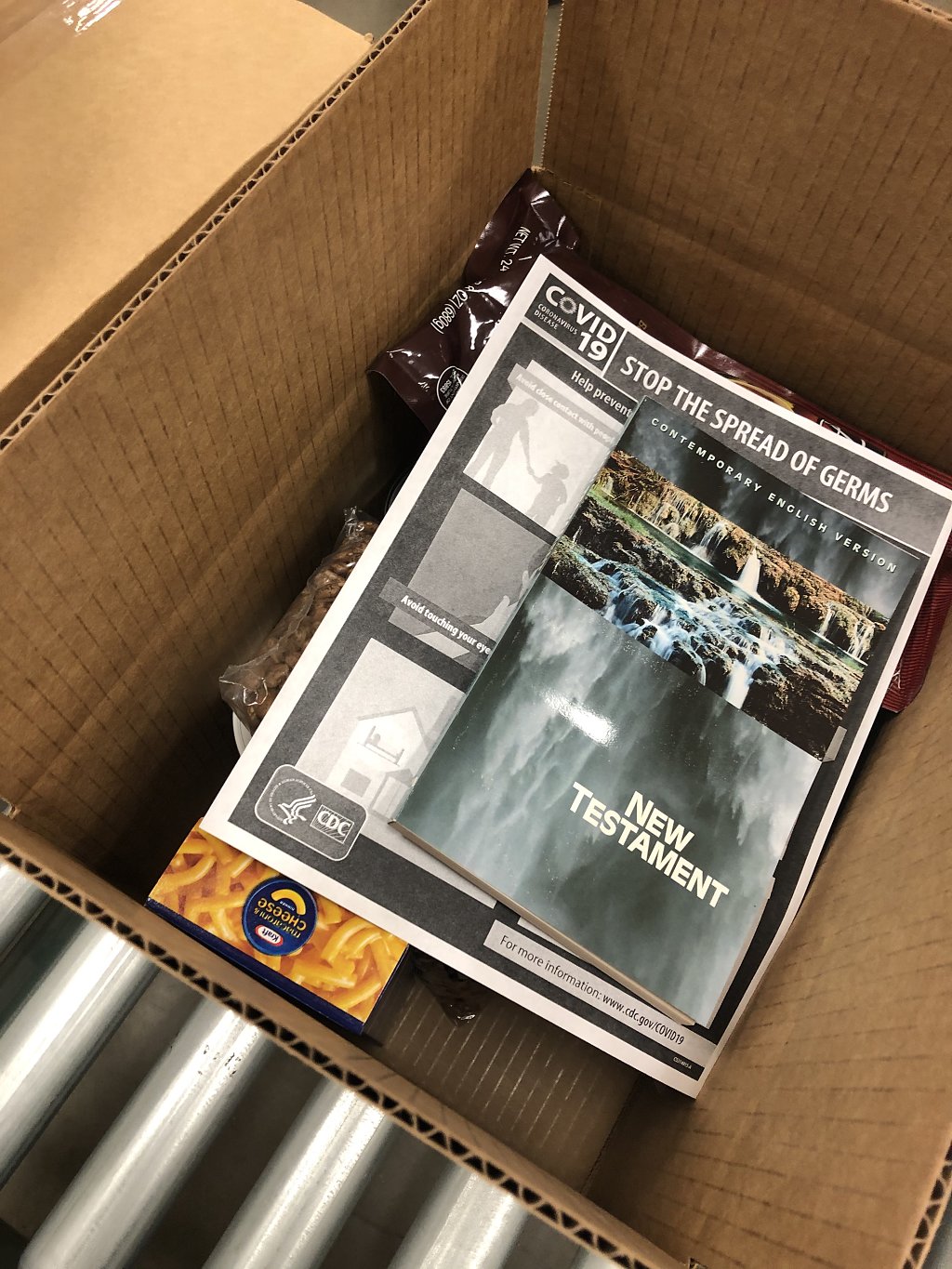 “We are seeing an increase in engagement from a lot of families who weren’t able to attend our in-person classes before,” said Michelle Heflin, director of Project HOPES in Longview. “It’s giving us some ideas on how to make our services even more accessible when life returns to normal.”
“We are seeing an increase in engagement from a lot of families who weren’t able to attend our in-person classes before,” said Michelle Heflin, director of Project HOPES in Longview. “It’s giving us some ideas on how to make our services even more accessible when life returns to normal.”
“When will things return to normal” is a question Buckner clients across programs and cities continue to ask, and while Buckner staff don’t have a clear answer, they can say with certainty that Buckner will continue to serve vulnerable families, like the Tululs of Bachman Lake, through any crisis.
“Many families come to Buckner when they are at the end of their rope. This has been true before the pandemic and will continue to be true during it and long after,” Silva said.
Even during a global pandemic, hope shines at Buckner.


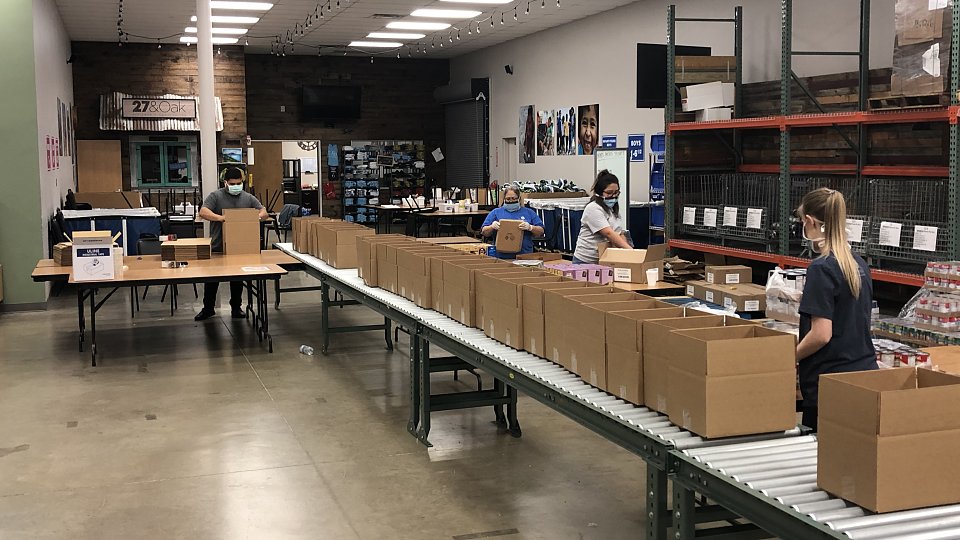

Add a Comment